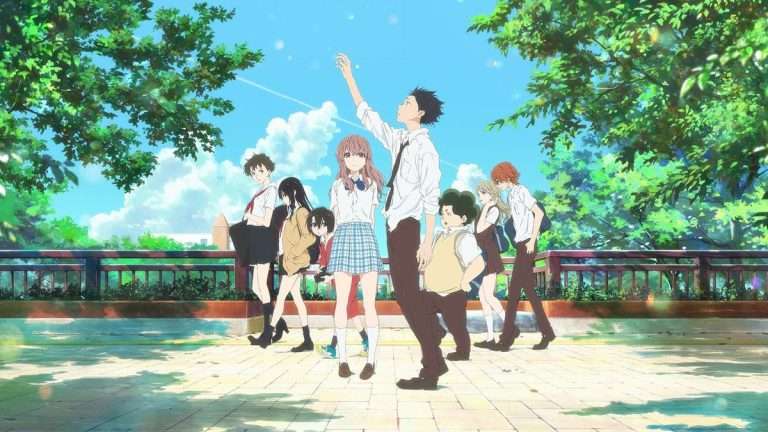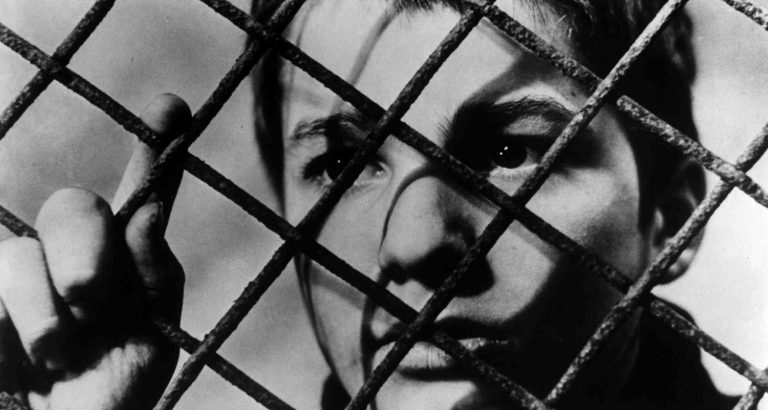Wheel Of Fortune and Fantasy (2021) – A Complex Dish of Desire, Identity & Self-exploration served piping hot: It rarely happens that all the tales contained in an anthology are equally rewarding. But, in this movie, carefully picked vignettes of immense depth and understanding are woven together into a fine piece of fabric. The way pieces of a scrambled puzzle assemble to form a distinct whole, greater than the sum of its parts. At the end of the second film, the camera languorously tilts up a tree, focusing on the distant slabs of concrete on a building under construction. It acts as a silent meditation on the dynamic nature of storytelling, a metaphor for its ever-changing landscape. It keeps reinventing itself through ages in endlessly interesting ways.
Wheel Of Fortune and Fantasy, directed by Ryusuke Hamaguchi, deals with the timeless ideas of destiny, desire and despair spread over a collection of three short films. In the first film, Meiko, a young professional model, discovers that her best friend has spent a magical evening with a man, who is Meiko’s ex-boyfriend. She visits his office to confront him with her unresolved issues and gets embroiled in a perplexing dilemma. In the second one, a young mother, resuming her graduation, is involved in a scheme to seduce an old french professor to defame him at the behest of her much younger friends-with-benefits partner, studying in the same college. In the last one, a recently unemployed IT girl, visiting Tokyo for a high school reunion, accidentally runs into a middle-aged married woman, mistaking her for her former lover. Their worlds tumble and collide as a heartfelt connection forms between them over their shared regrets and suppressed feelings. In each of the stories, coincidence and fantasy play a central role in their quest for identity, while they frequently stumble as they try to find their place in the world.
PART ONE: Magic or Something Less Assuring
The title of the first film, Magic or something less assuring, aptly summarises its subject – a tenuous bond forsaken due to the insecurities which it breeds exacerbated by the contrasting presence of a pitch-perfect “Magical” connection. But it never materializes in the way she imagines it. As her friend recounts the elusive reverie of that exotic night, her own residual longings, left after the explosive breakdown of her relationship, wouldn’t leave her at peace. The moment it dawned upon Meiko that the person her friend had spent the evening with was her ex-boyfriend, a solidified igneous rock suddenly turned into molten lava, flowing out unrestrained. Her confrontation with the ex-boyfriend at his office was an amalgamation of those scattered shards of glass still pierced into her heart. Their abrupt break-up had led to swollen knots in the woollen cloth of their ties, which untangled swiftly after this incision.
Also, Read – Wheel Of Fortune And Fantasy [2021]: ‘Berlinale’ Review – A Gorgeous Trifecta About The Conversations That Bind Us
Hamaguchi has shot this conversation interestingly, as they both appear in different frames most of the time, elaborating the rift present between them. Even when they appear in the same frame, the composition is such that they look trapped in a box where all escape routes are deliberately misleading. She tucks at his pressure points, alternatively teasing and praising him while also accusing him of ignoring her needs in their relationship. She asks him earnestly to view her infidelity from a different perspective, where her dissatisfaction and penchant for a sexual adventure to uplift her spirits played an important role in her misdemeanour. Being exonerated of her crimes is not something she demands of him, only a careful look at himself and her mental state at that time while he tries to admonish her for being unfaithful, simultaneously pining for her embrace. She knew about his inability to move past her, which she cleverly demonstrates through her curated selection of inflammable words, indicative of her spitfire personality.
However, her newly discovered envy could lead her nowhere, a fact she accepts when the fantasy scenario (where she reveals everything to her friend in front of him, pleading him to get back together with her) plays out in her mind. The deceptive nature of that scene, which looks as if it happened for real, is evident as Hamaguchi tricks the audience like an expert magician. She cannot be the kind of magic that he fawned over in his rendezvous with her friend. For her, the magic lies in the lesser assurance of a stable relationship if he chooses to be with her. But, she also realizes that the magic would only cause further trouble for both of them, caught in a reiterating hellscape that looks like heaven from afar. The need to break out of this loop, trammelling their voices, is essential for the wellbeing of both of them. She is not the kind of person who would wish to watch the world through rose-tinted glasses, no matter how appealing it seems to her. So, she cleverly chooses to remain silent about their history and walks away with her thorny patches, accompanied by a melodious sonata, which doesn’t prick her much, content with “something less assuring” – herself.
PART TWO: Door Wide Open
The second story, Door wide open, explores the repercussions of falling onto a pattern dictated by others’ opinions of us. When Nao agrees to seduce Professor Segawa, it seems more of an attempt at gaining her sexual validation than a favour. The threat of a purely physical relationship coming to an end makes her already fragile self-esteem plunge deeper into the muddy waters of a soddy marsh infested with weeds. It is the only beacon of shining optimism left in her life as she struggles to deal with the various scornful eyes looking down upon her. The relief of a sexual encounter is unable to fill that chasm, though it may become temporarily invisible by its effect. But its sprawling tentacles have grasped her tightly in its coil, stifling her inner voice completely.
So, it doesn’t come as a surprise when her seduction takes a completely different turn. Professor Segawa, with his insightful advice and seasoned intelligence, dissects the process of storytelling, along with Nao’s personality, keeping the door wide open to explore the uncertainties creeping inside her. The worms residing within the apparently fertile soil are picked up one by one and exterminated. In a reversal of fortunes, Nao is herself seduced by Professor Segawa, his solemnity striking a deep chord within her. The mechanical precision with which he analyzes the lurid passage purposefully read by Nao bewitches her. She breaks down while unpacking the gigantic cartons of her piled-up emotional baggage. The only person who actually cared to give her credit for her academic performance, considering her reserved approach to dealing with fellow students, was finally found. When she discusses the motives behind her promiscuity with Segawa, he doesn’t judge her, clearly understanding from where her passion and its subsequent pursuit arises. He intently listens to her problems, like a therapist, though he deftly shirks of the possibility of him being able to replace that role for her.
Here, the composition also subtly shifts according to the changing power dynamics. While initially they are separated at a distance, mostly captured in Long-shots and medium-close-ups, often not appearing together in the same frame, they later share the frame, as Hamaguchi moves toward close-ups, because of their growing intimacy. Now, Segawa has a greater hold over her opposite to her grasp at the beginning of the conversation. Her soothing, mellifluous voice had made a stark impression on him. She is surprised that he is not appalled at the fact that she recorded the entire session. Instead, he is happy she did so, as he was afraid he would never get a chance to recreate this enigma in the future. He could not afford to lose out on this fortuitous opportunity that came his way. His casual indifference towards society’s yardsticks, which makes people crib at themselves, serves as an antidote to Nao’s ailment. They strike a bargain as she agrees to record the novel in her voice and send this recorded session to her benevolent benefactor on one condition – he has to promise that he will masturbate while listening to it. He understands the complex psychological network underlying her strange request – this assurance would satiate her need for validation, as it came from someone who valued her.
Stream Wheel of Fortune and Fantasy (2021) on Apple TV
Five years later, we learn that things went completely awry as she sent the recording to department head Sagawa, mistaking him for Segawa, leading to his voluntary resignation. Her ex-partner(sitting beside her on a bus), who hatched this whole plan, was delighted at this development, which further enraged her. The guilt was palpable, and so was the struggle with her identity, which she thought she had come to terms with but hadn’t. When she learns that he is engaged to a co-worker at a publishing firm, the part of her that earlier got involved in such clandestine affairs reignites almost immediately, and she plants a kiss on his lips. It’s this irrationality, stemming from the insecurities regarding people’s perception of her activities, that had pushed her into a corner, from which professor Segawa had tried to pull her out. Since his guiding light had extinguished, much due to her own fault, she fell back into her patterns prior to that fateful meeting. Whether it will lead to a path of self-destruction or it will transform into a smattering healing process is left purposefully open-ended by its ambiguous ending.
PART THREE: Once Again
In the third story, Once Again, role-playing and catharsis take centre stage, as we see two characters wrestling with the waves of unrest rising in their bosoms. At the high school reunion in Tokyo, Natsuko is searching for only one person, her first love, thwarted before it could ever fully blossom. Her eyes flutter while trying to evade the insufferable batchmates and their constant blabbering about utterly fulfilled domestic lives. It is a clever move on the director’s part to create a template on which her backstory will heavily rely as we move into the latter half of the story. Dejected at the missed opportunity to reconnect with her lost love, she becomes susceptible to the revelatory gift laid by fate in her path. She mistakenly assumes the woman she runs into at the station to be the one she was looking for at the reunion. When she visits her home to lay bare her feelings, the woman cautiously tells her that she may not be the one Natsuko was seeking. This throws her off-balance but eventually, she becomes invested in the woman’s story.
The virus-imposed (the computer virus which has disclosed personal data to close acquaintances) restrictions cause them to communicate through letters and postcards, making the premise believable. The necessity of person-to-person interaction lends urgency to their situation, where they may never be able to track their respective lovers in a world devoid of the internet. This gives them an idea, proposed by Aya (the woman), to play the roles of their respective sweethearts to carry off the loads which have weighed heavily on their chests for years. Aya has even condoned the possibility of her husband nearly indulging in an affair with a colleague, not because he refused to pursue it and maintained his integrity. She simply does not care enough about that relationship as she has succumbed to the rules society wants her to play by, abandoning her desires in the process. Her marital ennui is a striking image of placidity, chosen to avoid the risk of being yourself, fraught with the dangers of being ousted from the elite circles.
On the other hand, Natsuko has remained single(also unemployed as IT services are no longer required), but she is comfortable with her sexual orientation and does not have to pretend to be straight. The middle-class luxuries, which engulf Aya like boisterous hazy clouds, are unable to conceal her sadness. The void, as Natsuko claims, resides in both their hearts, spurned by the sense of separation, which was never meant to take place. While trying to mirror each other’s partners in the drama, they end up mirroring a part of themselves.
They know they may never meet their real partners again in their lives. But, they also understand the value inscribed in their precious jewel of this meeting – a chance provided by fate to resolve those convoluted threads of the yarn spun years ago. The fantastical nature of this act is a small rebellion against the oppressive nature of the society, which constrained the expression of their individuality. The respite provided by this game of fictional theatrics could ameliorate the pain caused by reality. They could shed all the inhibitions and be naked with each other, like infants in cradles once again. Aya tells Natsuko, during role-play, that she loved her ability to remain unbothered by criticism from peers in high school (the template at the beginning) and never vying to belong to a social group. Although Aya is addressing her lover, we sense that it is somewhat true, for Natsuko too, from her sincere response. The drama assumes the significance of reality, and it’s these tender moments, like soft feathers brushing past our skin, which enlivens the screen with its hypnotic lure. They have touched upon each other in ways no stranger can, partly due to the connective tissue of love and repression which bound them together. At the end, when Aya finally remembers the name of that girl, it becomes a joyous celebration for both of them as they realize how instrumental they had been in giving a much-needed closure to each other inadvertently.
Checkout – 75 Best Films of the 2010s Decade
Overall, the three stories combine into a sweet and sour cocktail of life’s various challenges thrown by the intricate web of fortune and fantasy. The minimalistic storytelling techniques combined with the few moments of the moving camera ( mostly in the last story) repeals any adornments that may have been carved over its skeleton. The result is an extraordinary piece of storytelling that includes acute observation, along with a straightforward treatise, on the fluctuating definitions of identity in the modern world, especially when the desire comes into play. It asks you to sit back and patiently take in the flimsy disorderliness of the chaotic world and serves you the delightful dishes fittingly.

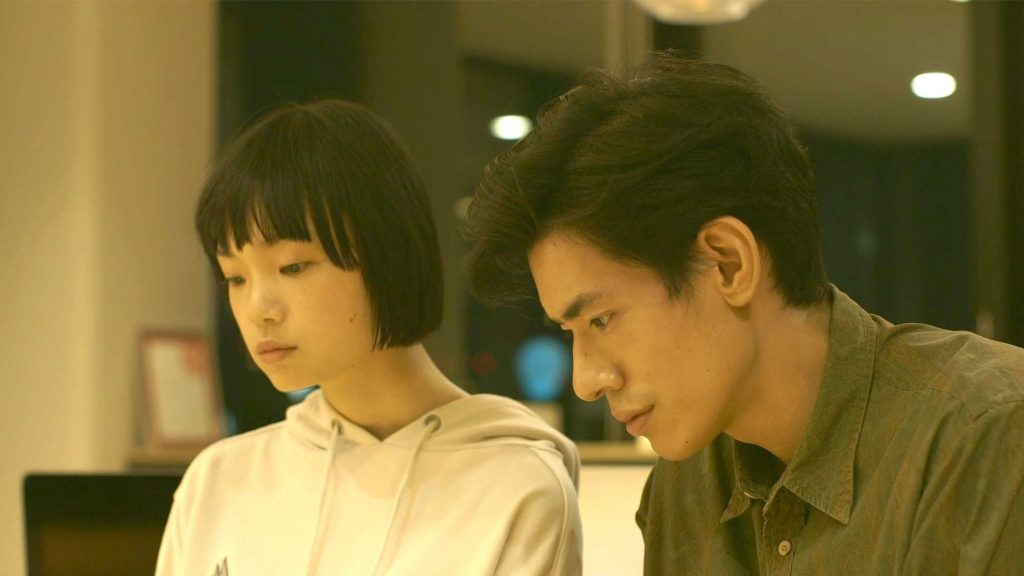
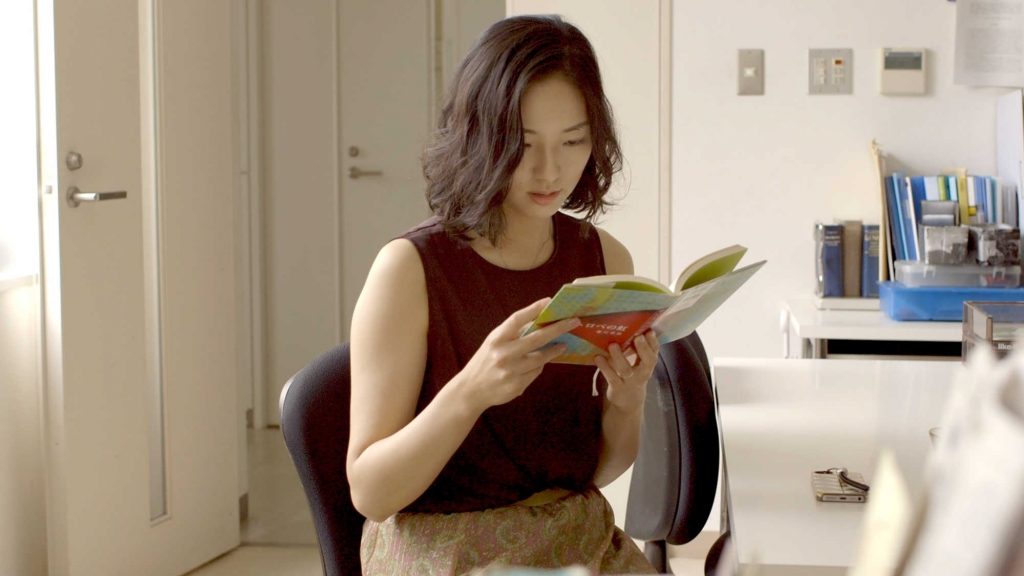
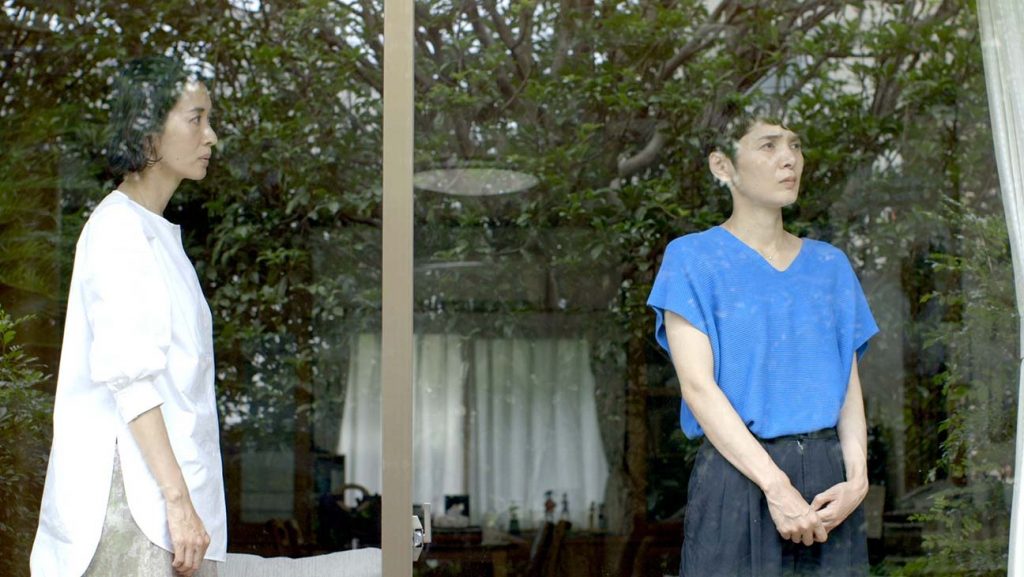
![Reflection [2021]: ‘Venice’ Review – A Beautifully Shot Microcosmic Tale on Trauma & Violence](https://79468c92.delivery.rocketcdn.me/wp-content/uploads/2021/09/Reflection-2021-768x320.jpg)
![Silent Land [2021]: ‘TIFF’ Review – A Laidback Exploration Of A Toxic Marriage](https://79468c92.delivery.rocketcdn.me/wp-content/uploads/2021/09/SILENT-LAND-by-Aga-Woszczynska_HOF-768x415.jpg)
![Imminent Threat [2021] Review – An interesting audio-visual assemblage that hits familiar notes](https://79468c92.delivery.rocketcdn.me/wp-content/uploads/2022/01/Imminent-Threat-1-768x433.jpg)
![Prime Time [2021] Review – Empty hostage thriller features another great Bartosz Bielenia performance](https://79468c92.delivery.rocketcdn.me/wp-content/uploads/2021/04/Prime-Time-2-highonfilms-768x432.jpg)
